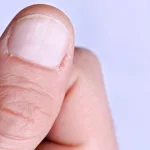Quick Answer Summary
If you’re wondering whether the scale will tip in your favor after a hip replacement, the short answer is: most people don’t automatically lose weight. The surgery itself eases pain and improves mobility, but weight change depends on the choices you make afterward. A modest loss of 5‑10 % of body weight is realistic if you combine a sensible diet with safe, low‑impact activity. Otherwise, many patients stay the same weight—or even gain a few pounds.
Bottom line: hip replacement opens the door, but you have to walk through it.
What Science Says
| Study / Source | Population | Finding on Weight | How to Cite |
|---|---|---|---|
| Middleton et al., 2007 – “Total Hip Arthroplasty Does not Aid Weight Loss” | 180 patients, 2‑year follow‑up | Average BMI increased post‑op, regardless of pre‑op weight | According to a 2007 study in the Annals of the Royal College of Surgeons… |
| Schwartsmann et al., 2014 – Brazilian Orthopaedic Review | 140 patients | No significant weight loss; obese patients often gained weight | Researchers found that weight remained stable after surgery… |
| Hospital for Special Surgery registry, 2014 | ~7,000 hip & knee replacements | ~50 % unchanged BMI, ~25 % lost > 5 % weight, ~25 % gained > 5 % weight | As reported by a Hospital for Special Surgery study, weight change was split roughly evenly. |
| Pre‑op weight‑loss study, 2024 – NSQIP analysis | 20,000+ THA patients | Weight loss > 10 % before surgery linked to longer hospital stay and more complications | Recent NSQIP data showed that rapid pre‑op loss may backfire… |
These studies paint a consistent picture: surgery alone isn’t a weight‑loss tool. The few patients who shed pounds do so because they deliberately adjust their nutrition and activity after the operation.
Why Weight Stays
Physiological Factors
After surgery your body is busy healing. Even though pain eases, the repair process needs calories—especially protein—to rebuild tissue. That extra metabolic demand can offset any calorie deficit you might try to create.
Behavioral Factors
Many people think, “I finally got my hip fixed, so I can relax and enjoy food again.” That mindset can trigger “reward eating” once the pain disappears. Without a conscious plan, the newfound freedom often leads to higher caloric intake.
Medical Factors
Post‑operative medications, such as steroids or certain pain relievers, can increase appetite. Also, underlying conditions like type 2 diabetes or thyroid disorders continue to influence weight, regardless of the new hip.
Real‑World Example
Take Maria, a 62‑year‑old who lost 2 kg in the first month after her surgery by walking short distances. By month 12 she was up 5 kg because she stopped her walking routine after the pain went away and started “treating” herself with extra desserts. Maria’s story shows that without a plan, the honeymoon period can quickly turn into a weight‑gain chapter.
Make It Work
Turning a hip replacement into a springboard for weight loss is absolutely doable, but it takes a balanced mix of nutrition, movement, strength, behavior, and medical monitoring. Below is a roadmap you can follow—think of it as a friendly cheat sheet.
Nutrition
First, give your body the fuel it needs to heal while still creating a modest calorie deficit (about 500 kcal per day). A “hip‑surgery diet” looks like this:
- Protein‑rich foods: lean chicken, fish, Greek yogurt, tofu – aim for 1.2‑1.5 g per kg of body weight daily.
- Complex carbs: whole grains, legumes, sweet potatoes for steady energy.
- Plenty of veggies: colorful, fiber‑filled, low‑calorie champs.
- Healthy fats: olive oil, avocado, nuts – keep portions small.
Staying hydrated (2‑3 L of water a day) helps curb false‑hunger signals, and spacing meals every 3‑4 hours keeps blood sugar stable.
Sample One‑Day Meal Plan
- Breakfast: Scrambled egg whites with spinach, whole‑grain toast, and a handful of berries.
- Snack: Greek yogurt with a drizzle of honey.
- Lunch: Grilled salmon salad with mixed greens, cherry tomatoes, cucumber, and olive‑oil vinaigrette.
- Snack: An apple and a small handful of almonds.
- Dinner: Turkey meatballs, quinoa, roasted broccoli, and a side of sautéed carrots.
Movement
Low‑impact cardio is the safest bet once your surgeon gives the green light—usually 2‑4 weeks after surgery. Here’s a simple progression:
- Weeks 2‑4: Gentle seated marching, ankle pumps, and short walks (5‑10 minutes).
- Weeks 5‑8: Stationary bike or recumbent bike, 15‑20 minutes, 3‑4 times per week.
- Weeks 9‑12: Water walking or aqua aerobics—great for joint protection while burning calories.
- Month 4 +: Gradual increase to 30 minutes of brisk walking or elliptical, aiming for 150 minutes per week.
Remember, the goal isn’t to sprint; it’s to stay moving enough to create that calorie deficit without overloading the healing hip.
Strength
Strong glutes and quads support the new joint and make everyday tasks easier. A typical post‑op strength routine (once cleared) includes:
- Resistance band hip abductions – 2 sets of 12‑15 reps.
- Seated leg extensions – 2 sets of 10‑12 reps.
- Wall‑sits – hold for 20‑30 seconds, 3 reps.
- Heel raises – 2 sets of 15 reps.
Working with a physiotherapist ensures you use proper form and progress safely.
Behavior
Weight management is as much mental as physical. Try these tactics:
- Set SMART goals: Specific, Measurable, Achievable, Relevant, Time‑bound. Example: “Lose 4 kg in 3 months by walking 20 minutes a day and tracking meals.”
- Track everything: Use a free app to log steps, calories, and how you feel after workouts.
- Weekly check‑ins: Schedule a 15‑minute phone call or video chat with a dietitian or physiotherapist.
- Positive reinforcement: Celebrate small wins—new walking shoes, extra stamina, a tighter pair of pants.
Medical Monitoring
Before you dive into any weight‑loss plan, get a quick health audit:
- Review your medication list—some drugs (e.g., corticosteroids) can boost appetite.
- Ensure chronic conditions (diabetes, hypertension) are well‑controlled.
- Discuss any rapid pre‑op weight loss with your surgeon; a loss > 10 % in a short window can increase risk of anemia and slower healing (as shown in the 2024 NSQIP study).
Quick‑Start Checklist
- ✔️ Schedule a pre‑op nutrition consult.
- ✔️ Get a personalized physiotherapy plan (low‑impact cardio + strength).
- ✔️ Write down a realistic SMART weight‑loss goal.
- ✔️ Track daily steps and calories with an app.
- ✔️ Review medications with your surgeon.
- ✔️ Plan follow‑up visits at 6 weeks, 3 months, and 1 year.
Feel free to print this checklist or save it on your phone—having a tangible reminder can keep you on track.
Conclusion
Weight loss is not a guaranteed side effect of hip‑replacement surgery, but the operation does give you a unique opportunity to reset habits that were once limited by pain. The evidence shows most patients stay the same weight, while a minority lose or gain ≥ 5 % of their body mass. The difference comes down to the choices you make after the operation.
By pairing a balanced, protein‑rich diet with safe, low‑impact cardio, strength work, and mindful behavior, you can harness the newfound mobility to tip the scales in your favor. It won’t be a magic‑bullet solution, but with steady, realistic steps, you’ll likely see improvement in both your weight and overall quality of life.
So, what’s your next move? Grab that walking shoe, plan a simple healthy meal, and give yourself the permission to celebrate each small victory. If you have questions, personal stories, or need a little encouragement, drop a comment below—let’s keep the conversation going!


















Leave a Reply
You must be logged in to post a comment.